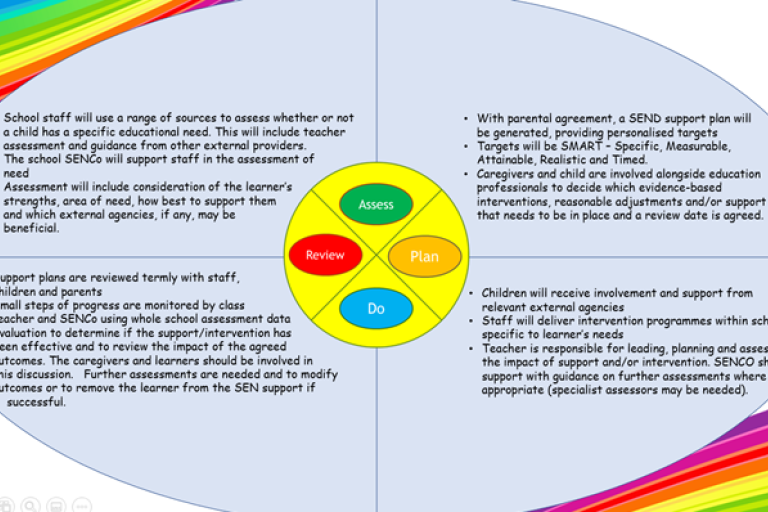The Graduated Approach
The graduated approach starts in the classroom. Teachers in school are continually assessing all learners, which informs their planning and implementation of their lessons. However, where a possible special educational need has been identified, this process will become more individualised and targeted at meeting the needs of the learner. The Code specifies that high quality teaching (known as Quality First Teaching QFT) with differentiated and personalised support should be the first reaction the SEN needs of a learner. Educators need to develop a clear understanding of the strengths, weaknesses, and challenges that the learner may have. This should include an understanding of any needs and challenges the caregivers may have as the family and home life will have a profound impact on the learner’s ability to manage the demands of any educational setting. The Code of Practice has an emphasis on setting aspirational targets to enable the learner to achieve good long-term outcomes to enable them to lead independent and successful lives. Early identification of SEN is key to supporting their needs. It is anticipated that assessment takes place in the learner’s early years, but this is not always the case and some learner’s needs go unidentified leading to challenges in later stages of their education.
The Code outlines the graduated approach through which earlier decisions and actions are revisited, refined, and revised, leading to a growing understanding of the child’s needs and what supports them in making progress and securing good outcomes
